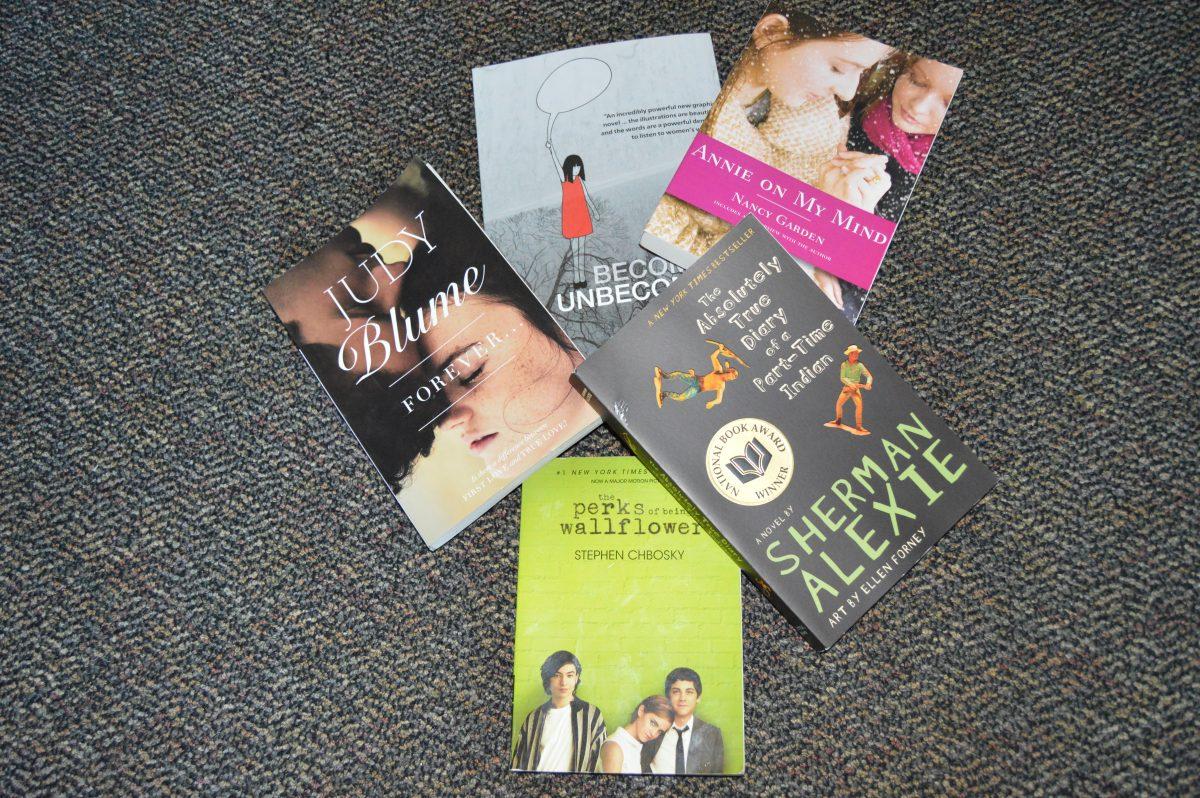Picture by Danna Tabachnik
Pick up and brush off an old copy of “Huckleberry Finn,” because this week is Banned Books Week, a yearly commemoration of the freedom to read sponsored by the Banned Books Week Coalition. The BBWC aims “to engage various communities and inspire participation in Banned Books Week through education, advocacy and the creation of programming about the problem of book censorship.”
According to bannedbooksweek.org, Banned Books Week first occurred in 1982, curated to serve a response to the sudden surge of book challenges. The American Library Association defines a challenge to literature as an attempt by a person or group of people to have literature restricted or removed from a public library or school curriculum.
The five most challenged books of 2016 all dealt with various LGBT undertones. Sam Becker, Drake University’s campus engagement librarian, said this isn’t a surprise.
“Historically, books about the queer community tend to be (challenged) or they’re categorized as adult fiction even if it is a coming-of-age novel about two teenagers,” Becker said.
In 2008, a book called “And Tango Makes Three” was challenged in an elementary school library in Ankeny, Iowa, just 20 minutes from Drake University’s campus. The book’s plot centered around the true story of two male penguins raising a chick in the Central Park Zoo. The complaints from parents piled up due to concerns that the two penguins in the story promoted homosexuality to their children.
On a campus that doesn’t have a problem with book challenges, it may be difficult to pinpoint the reasoning behind bringing awareness to Banned Books Week at Drake.
“I think it’s important because of the voices that are most often banned,” Becker said. “(Book challenges) are something you wouldn’t necessarily know about unless you were paying attention, and challenges can look like a variety of different things.”
This semester, Professor Beth Younger is teaching a first-year seminar called “Banned Books.” She has a strong stance about banned books.
“No books should ever be banned,” said Younger, an associate professor of English at Drake.
Becker agreed with Younger’s assessment.
“I personally don’t think that books should be banned. I think you’ll find that most librarians exist in that space, ” Becker said.
Younger’s FYS has allowed her the opportunity to thoroughly examine both sides of the censorship and literature challenge argument, giving her a better understanding that she’s able to share and build upon with her students. However, the class has also helped further strengthen her already-standing beliefs about censorship.
“My FYS has helped me solidify my belief in the freedom to read,” Younger said. “It has also helped me better understand those who wish to restrict reading materials from certain audiences. Everyone should care about Banned Books Week. Education is nothing without ideas. We should all fight to protect our democracy and the freedom to read.”
Banned Books Week will be going from Sept. 24 to Sept. 30. Students can participate in the freedom to read by visiting the on-campus leisure reading section, located in Cowles Library.







